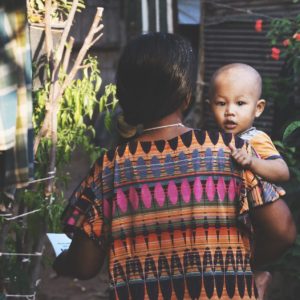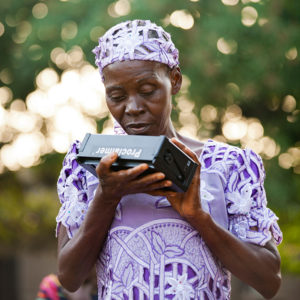The majority of people in the world belong to oral cultures. For them, faith literally comes by hearing. With this in mind, one of the tools we use to share Scripture with these communities is audio recordings of Bible stories! So how does Scripture go from words on paper to audio?
Jo Clifford shares a great step-by-step account of one of the many trips she takes to record Scripture, this time to Mpanda in Tanzania. From invitation to hanging blankets over wooden frames, this is a brilliant window into the world of Scripture audio recording:
‘I regularly receive requests from various language projects to do audio recordings of Scripture. A couple of months before a trip I need to prepare the script of the audio recording – taking the Scripture text and dividing it up into the different characters (narrator, Ruth, Boaz, Jonah etc). Then copies of the parts are given to the different people who have agreed to read for us, so they have time to practice. I discuss with those hosting the recording work what location might be best. The preference is for somewhere quiet, with power if possible (otherwise a generator is necessary to run the equipment). I also ask if there are blankets available for soundproofing the studio structure as well as some wood to make the frame. I bring the rest of my recording equipment.
When I am recording I rely on others to help me. I explain the recording process to the person who has come to read the part. Before we start recording I always get people’s consent to use their voice.
Jo at work
I usually ask for at least one translator of the language being recorded to be present to follow the reading and make sure words are read correctly. I have the text so I can generally follow along, but I don’t know the languages and some languages incorporate tone to express meaning.
Before a reader begins, I often paint a picture of the context to help them think about what they are reading. To get the most realistic recording, I often ask if there is special way of saying something in their culture which signals for instance an attitude of prayer or of showing fear or celebration.
At the time of recording I will do a rough edit of each clip. The same evening I will go through all that has been recorded that day and edit each clip, taking out breaths, clicks from lips smacking together and any extra space between phrases and sentences.
Editing audio recordings
[Then] I will start to put all the clips together to make each chapter and will add the sound effects. I will play it to the translators who speak the language to check all the text is correct, that they like the sound effects and that I haven’t edited something out by mistake!
When the translators are happy with the audio, then I can produce the MP3 tracks which can be made into CDs, or be put onto a mobile phone, uploaded onto the language website and put onto the language Scripture app.’
Interested in finding out more about the work of Wycliffe and how you can be involved? Come along to one of our one day events First Steps!












